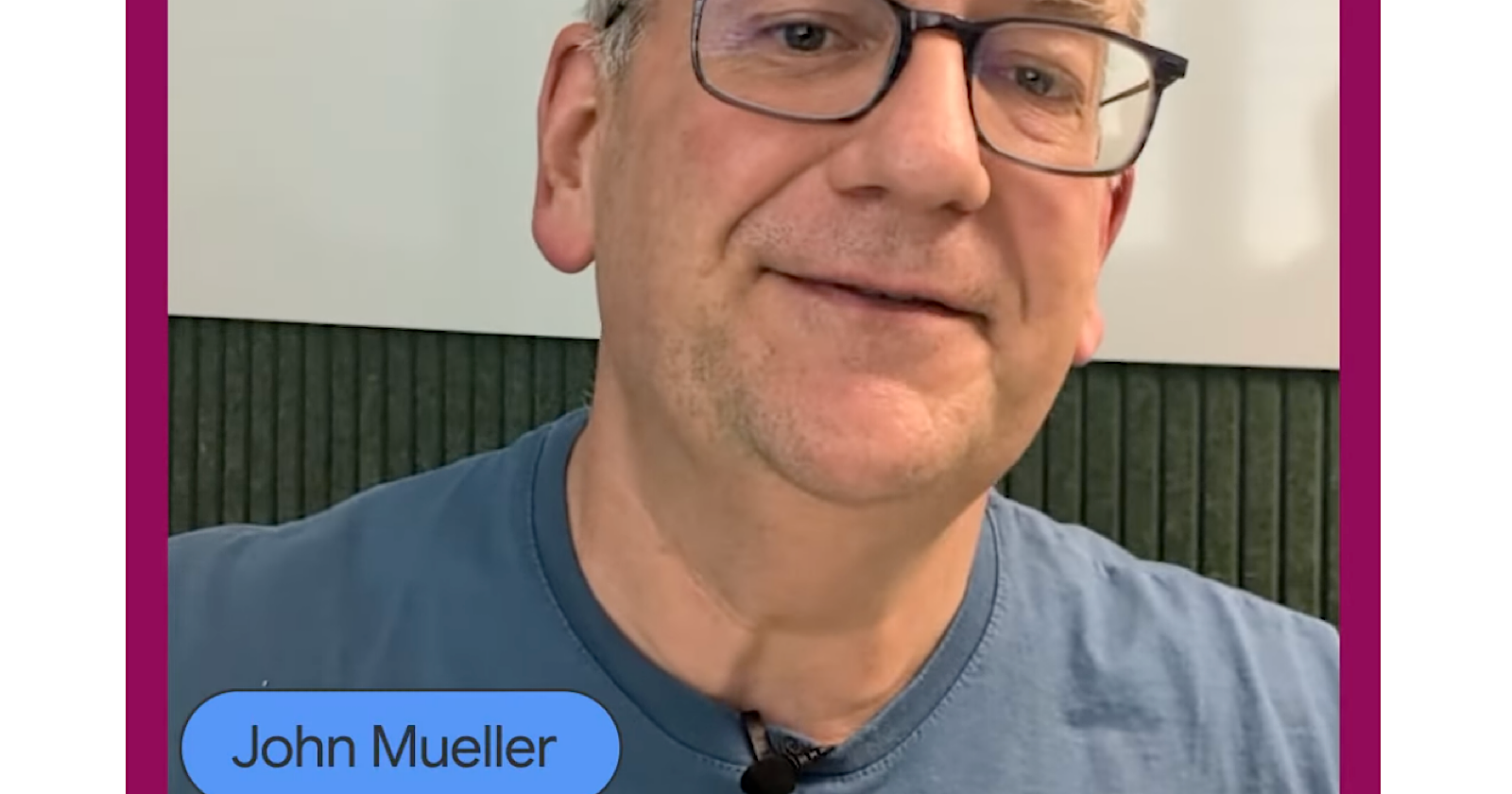A Father’s Secret for Becoming Jacked & Healthy In Your 50s | Joe B. | Better Man Podcast Ep. 111
Joe wasn’t always jacked and healthy. In fact, after his first daughter was born, Joe didn’t exercise for 15 to 20 years! One day just four years ago, Joe didn’t like how he looked, how he felt, or the...

Episode 111: A Father’s Secret for Becoming Jacked & Healthy In Your 50s - Joe B - Transcript
Dean Pohlman: Hello and welcome back to the Better Man podcast. We’re doing member interviews again today, and this time I have Joel Bernier here. He you’ll probably recognize him in the Facebook group as the really jacked guy who is also really flexible. He is an inspiration to all of us. Joe, thank you for being here.
Joe B: Oh, Dean, thanks for you for inviting me. It’s, it’s really an honor to, speak with you and share some of my experiences about, you know, my fitness journey and and especially Malcolm in flow yoga.
Dean Pohlman: Yeah. I wish you guys could see, I wish we could. If you’re watching this, I wish you could just see a photo of of, of Joe’s physique right now, because it’s impressive. It truly is impressive. And, we’re going to get into it in a second here. But Joe did not always look like that.
Dean Pohlman: You know, he was still a wonderfully handsome man, but, he was he’s definitely not as muscular. And so I’m really interested, and I’m sure everyone else who has seen you is interested to learn more about how that happened. So for you, it kind of started. So I what was your oh, you know, what was your moment.
Dean Pohlman: When did you realize okay, I’ve got I’ve got to turn things around here.
Joe B: Yeah. Well, you know, my family was my priority through my 30s and my 40s. You know, I think that’s just natural, you know, in, in parenting. But I was starting to stare down, turning 50. All right. So in 2020, I was 48, 49. And, 50 was right around the corner. And the way I saw myself was I was overweight.
Joe B: You know, my professional job is I’m an IT director. I work, and, you know, very large IT projects. I am chained to my desk. It’s just the nature of what I do. It’s very analytical. It’s intense. But I am sitting the majority of my day. And what I found is I was losing flexibility.
Joe B: I mean, I think in general, I’m a fairly flexible person, but I remember around that time I could barely get my hands past my knees. And, you know, compared to where I am now. You know, that really speaks a lot about the state I was in. I had the tongue in neck pain, and it’s probably from just sitting at my desk and, you know, having a phone or whatever it was.
Joe B: But I had this terrible radiating neck pain. And my doctor was like, you know what? If you don’t start doing something, you’re gonna have to go on meds, you know, probably like cholesterol medicine. And so on. So at the end of the day, as I was turning 50, I was just kind of unhappy. I didn’t like the way I looked, and I didn’t like the way that I felt.
Joe B: So, that was kind of my oh shit moment. I was like, I need to make a course correction here.
Dean Pohlman: Yeah, I think people a lot of guys can relate to that. I mean, you’ve got to focus on providing for your family and, you know, being there for your family. And sometimes it just takes a back seat to that. And just just for reference. So, I mean, you have athlete in your genes. Your daughters are right. Your daughter’s in a non-Olympic.
Dean Pohlman: Sorry, but she’s a she’s a college, college chip. She’s a collegiate athlete.
Joe B: Gymnast, right? Yeah. Yeah, actually it’s funny, you know, they sort of are my, you know, how did you realize you needed to do something? And I remember sitting down one day, and maybe you’ve had this with your your own kids team, where you just look at them and you have that moment, that observation where you’re like, God, this is an amazing human in front of me.
Joe B: And I remember we were just together and not really doing anything like important or impressive, but just together and I remember looking at them thinking, you know, my wife and I raised these talented, smart, independent and athletic young women. And to your point, they both ended up going on to do D1 college athletics. One was, a rower.
Joe B: So, you know, in Cru and the other, is a gymnast. Still, she’s in her senior year this year. And, I remember sitting there thinking, you know, they’re just amazing to me. And as their father, who had been a role model for them their whole life, I sat there thinking, I need to do better for them.
Joe B: You know, I need to show them a good example of aging by aging with, you know, fitness and health in mind. And it also made me think about the fact that, you know, at some point in our lives, we’re all going to have to rely on others to help us. And it made me realize, like, I was sort of inviting that to happen sooner rather than later.
Joe B: And that really wasn’t fair to them. And it wasn’t fair to my wife and so, you know, they really became, the reasons why I needed to make this change. I knew it had to happen, but they were sort of my why?
Dean Pohlman: Yeah. That’s a that’s a powerful realization.
Joe B: It was it’s just like sometimes like I it’s funny, I remember my youngest daughter, it was exactly the same thing where she was just sitting on the floor one day and I could see her processing information. It just like, did. It just goes in and you can see it happening. And that same moment I had with them when they were, you know, late teens, it was exactly the same.
Joe B: I just had that epiphany at that moment, and it was really kind of cool but powerful, and it made me realize I had more to do. In my life as a father, I, you know, I still I’m always going to be a role model for them.
Dean Pohlman: Yeah. I mean, that’s that’s that’s strong motivation. I’m also curious, did you did your parents take good care of themselves as they got older? Did did.
Joe B: You. Not really. It’s you know, I sort of come from a family of not great genetics. And so, you know, I guess subconsciously that was always a thing for me too, is like, I don’t want to be like that. And so let’s, let’s avoid it. You know, I’m just glad I started when I did.
Dean Pohlman: Yeah. Okay. So it’s time for you to make a change. What did you how did you go about deciding what you wanted to do? What were the options? What did you.
Joe B: Yeah. So it’s it’s actually interesting. I got my motivation to go back to the gym and this was in 2020. So right as Covid is really starting to rear its head and so I’d say are going to the gym. And I think maybe I had been going for three weeks and then it was shut down. And so I had all this momentum.
Joe B: I had all this mojo going, I’m sorry.
Dean Pohlman: Really quick question. So before you stopped working out, what did you done in your 20s and maybe in your early 30s? Yeah. What was your exercise?
Joe B: So, you know, it’s, in high school, actually through my probably since I was like six through 21, I actually was an ice skater, was a figure skater for many years. Oh, wow. And, so that, you know, was part of it. But through high school, I also did track, I was a varsity tennis, athlete as well.
Joe B: And so I was always very active. But again, that, that change in my skiing, you know, I love to do all of those things, but that change in family life just brought about a different attention. And I just did not prioritize my fitness. As you know, top of the list.
Dean Pohlman: Yeah. Okay. All right. Thanks for the background. You can you can get back to it. So you’re saying the gym shut down during Covid and.
Joe B: Yeah. So literally I had been you know, I got the mojo to go back in the gym and then it shut down and I literally was like, oh crap. Now what? You know, I got the the energy to get back in there and then shut down. So I don’t know how, but somehow I got turned on to mental yoga.
Joe B: I think I saw an ad and, you know, this is the point where we were all at home and all mentally going a little stir crazy from everyone being at home. And so I was like, you know what? I had done yoga, you know, in, in frequently in the past, I was like, you know what? That was a really good workout and I can do this at home.
Joe B: And so I signed up and, I think the combination of me having that motivation to go back to the gym and sort of the whole Covid thing really just drove my dedication to making it happen. I mean, I was doing, you know, mental yoga seven days a week for, you know, for months because it was an outlet, but it was also a physical activity.
Joe B: So it was something I mentally and physically needed.
Dean Pohlman:
Joe B: And, you know, it, you know, the best thing about it is, and you allude to this sometimes is that with yoga, it’s really kind of easy to see progress. If you are dedicated to it, you know, you’ll you’ll see the difference. And I saw it fairly quickly. And so it sort of became self-fulfilling. The more I did it, the more I wanted to do more.
Dean Pohlman: Yeah. How quickly did you did it take for you to notice that? Oh, this thing is working like I’m, you know. And what were those benefits?
Joe B: Yeah, well, I would I would definitely say within like two months. You know, I, I mentioned earlier that I couldn’t even get my hands past my knees, you know, and I think beyond, you know, around the two month mark, I was able to get my hands back to the floor. Oh, wow. You know, which so that’s.
Dean Pohlman: The that’s the flexibility improvements in two months. When did you start feeling better or when did you start noticing that you were. You’re.
Joe B: Yeah. Well, to me, it’s I think it was feeling better in the sense that I was gaining confidence. And I was starting to not be so achy and sore all the time. So it again, it’s just sort of all built. I could feel the results and it was making me feel better. I was feeling more, more confident, and I felt like I could start moving on to, you know, beyond strength foundations and move into some of more the more challenging, you know, routines.
Joe B: I think to your point earlier, I think I’ve always had that athletic ability, but I lost it and it was really great to feel that coming back.
Dean Pohlman: Yeah, yeah, I bet, wow. I mean, I’m just trying to process, you know, the you been active for so long and then, you know, taking, you know, that taking a back seat and then coming back to it after, you know, almost 15.
Joe B: 15, 20 years. Yeah. Wow.
Dean Pohlman: Yeah, yeah. So what did that. So you were you were consistent, seven days a week. Part of that motivation was you were noticing the results. You also there was also a mental benefit. It was Covid.
Joe B: Oh. Big time. Yeah.
Dean Pohlman: What else? Was there anything else that you think would be worth mentioning in terms of what helped you be consistent? What was the motivation?
Joe B: I.
Dean Pohlman: Mean, you mentioned, you know, that that moment where you, you know, saw your daughters and. Yeah, I need to be, you know, that help you on days when you were like, I don’t really want to do this.
Joe B: Yeah. You know, it’s funny. If you really knew me, it would. It’s one of those things where my wife sort of like, laughs about this, about me. Is that I can never have a hobby. I’m always all in 100%. And, you know, it. It’s a character pro and a con, I guess, but it’s, you know, again, it sort of became self-fulfilling to me.
Joe B: Like, I was dedicated to it. I was all in and I saw the results. And, so it really just sort of catapult catapulted me to, to work even harder and consistency was never, never an issue. In fact, I look back over the past four years, I mean, it’s it’s crazy to me that, you know, I’ve been working with you for four years, and in that time I, I can maybe count on my hand the number of scheduled practices that I’ve missed.
Joe B: Maybe 2 or 3. Wow. Yeah. It’s it’s. Yeah, it is.
Dean Pohlman: So when you, when you travel, do you do you do you do do it on the go or what do you always.
Joe B: Wow.
Dean Pohlman: Okay. And your family just like they’re like oh Joe’s. Joe’s hanging out with Dean Joe. Yeah.
Joe B: That’s it. Yep. Yep. Her dad, it’s, in my household. It’s sort of one of those things where I like to get up in the morning before everybody else. Yeah, because I have my cup of coffee. I get, like, my brain focused, woken up, and then I go do my activity, whether it’s yoga or lifting, it’s. That’s my time.
Joe B: Yeah. So that’s sort of like my activation energy for the day.
Dean Pohlman: Yeah. I’m leaning more into that getting up early thing. It had it requires me to start winding down earlier than I’m used to. I think I used to that about ten. Used to go to sleep around 1045 after I do some reading. And now I try to make sure that I’m done watching whatever my wife is watching by like nine, nine, 15 I spend about 30 minutes doing, you know, some sort of it’s probably it’s usually just tidying up.
Dean Pohlman: Maybe there’s laundry, maybe it’s cleaning the kitchen organizing. Nothing really stressful or strenuous, but just like going around making tomorrow easier.
Joe B: Yeah, the little things in life that are important.
Dean Pohlman: Yeah. And then getting up at six now instead of like 630 or 645 when the kids wake up and having just a tiny bit of time to myself to do some stuff, it’s, it’s definitely game changer. So, you know, something that I was thinking about, as you’re you’re talking about this, what is your, you know, what do what did did your wife say something to you after a few months of doing this, or did your kids say something or they’re like, wow, you know what?
Dean Pohlman: I really you’re a lot different. Or, like, you look so much different or is there.
Joe B: Yeah. So yeah, I yeah, I would say the, you know, my wife is very supportive of this. You know, she’s always, you know, do your thing. You know, if it makes you feel better, do it. But I would say, you know, it’s it’s fun because my kids are athletic. So it’s I get a lot of feedback from them and that that’s really cool to me.
Joe B: You know, like, you know, dad, you know, you’re you’re looking a lot, you know, toner, you’re looking more built or wow, that flexibility. And, you know, it’s sometimes one of my kids will comment on my posts, you know, in various places. I’m like, that’s kind of cool. You know, that’s for your own kid to be like, hey, dad’s doing something kind of cool.
Dean Pohlman: Yeah, that is really cool. So you, you know, so you consistent with, you know, man, for yoga for, a pretty long time. When did you eventually decide, hey, this is cool. I’m going to start testing my body’s. I’m going to start testing my body in some new ways now.
Joe B: Yeah.
Dean Pohlman: Stuff.
Joe B: Yeah. So once, you know, once the gym reopened, you know, I had I known I wanted to get back into, you know, more. My body was just not in the place it used to be. So I knew I wanted to hit the gym again. So at that point, once the, Covid closures had, you know, ended, I went back to the gym and I was still doing either 6 or 7 days a week now.
Joe B: But I was splitting my time, between me and flow yoga and and lifting. And I was actually doing, you know, alternating days, one day yoga, one day lift, one day yoga, one day lift. And and that was really, really good. You know what? I again, I seem to be motivated by the results. Yeah. And again, I think it’s just because at the end of the day, it gives me a lot more confidence.
Joe B: But between the two, I could see the flexibility and mobility coming back. And at the gym, you know, I could see that I was starting to rebuild muscle again. You know, I think about that first day I went back to the gym. This was before I even started man Flow yoga. And I remember walking in there and I had a couple of friends who I knew from the gym and, you know, different things.
Joe B: And I’d actually walked in there and I was sort of embarrassed because I’m like, oh God, now people are going to see like, what’s happened to me over, you know, ten, 15 years. And I was like, but you know what? I’m showing up. And that’s what’s important.
Dean Pohlman: So where did you I’m just trying to show where did you live? Where where do you live?
Joe B: Where do I lift?
Dean Pohlman: No. Live?
Joe B: Yeah. I just went to a planet Fitness near me. Live?
Dean Pohlman: Where do you live? Oh, live.
Joe B: Well, Providence, Rhode Island.
Dean Pohlman: Okay. Got it. So is it. You know, you said you’re going to the gym and that people recognize is is it a relatively. I mean, how many people live in Providence?
Joe B: Oh, it’s a it’s a good sized city. I mean, it’s not small, but it’s good size. But these are like friends I’ve had for years or, you know, people who I knew at another gym who had migrated here and, you know, so it was just, you know, I didn’t go in and I wasn’t, you know, an unknown face.
Joe B: I knew a few people, so it, you know, just going in and being like, yeah, this is what’s happened, but I’m here to fix.
Dean Pohlman: But anyways, go back, go back to what you were saying. So you were saying you were kind of embarrassed for people.
Joe B: Yeah, yeah, yeah. But you know, again, I was talking about the results and the combination of the of yoga and lifting and you know, that really sustained me a lot. You know, I find that they’re very symbiotic. You know, the flexibility and mobility I think definitely is helping me with the strength and vice versa. So it’s just to me, it’s been like a winning combination and you sort of say that all the time.
Joe B: But, you know, I like to believe, like, I embody that because I really believe it. And I think I’ve had good, really good results between the two of them.
Dean Pohlman: Yeah. That’s awesome. I mean, yeah, I, I do say that a lot. But I’m curious for you, if you, you know, if you’re looking at other guys, you talk with other guys who also lift in the gym. What’s the benefit? What what are the advantages that you have as someone who does mental yoga versus somebody who’s not doing that?
Dean Pohlman: Yeah. Mobility, flexibility work.
Joe B: Yeah. You know, I have to say in some ways I think I’ve gained a lot faster. You know, naturally than other people. You know, it’s like I think about, you know, like shoulder presses, for example, or, you know, any overhead things. You know, my shoulders are probably the tightest part of my body, but I was able to just sort of, like, jump right back into those things and progress quickly.
Joe B: And in my memory, I don’t remember even when I was younger, being able to progress like that in, in the weight room. So I there definitely is a benefit to, to it. Yeah.
Dean Pohlman: I mean, that’s pretty significant because, you know, lifting when you’re in your teenage years versus lifting in your 50s, the, the muscle just isn’t going to be there as easily.
Joe B: Right. So right. And that’s before I was back in the gym again, sort of even though that falling apart stage, you know, I remember in my shoulders, like there was a lot of cracking and snapping and popping, you know, shoulders are just that way anyway. And it was never painful, but it sounded awful. Yeah. And I think a lot of that has, like, really subsided.
Joe B: I mean, you know, and again, I think that comes from the flexibility mobility part of it.
Dean Pohlman: So are there any is there any other advice that you give people in terms of, combining mental yoga and weights that has helped to help you be successful or, or helped you with be successful in the sense of also getting stronger, but also keeping your body feeling good and not. I mean, like a lot of guys at the gym just in lower back pain and knee pain all the time, but still struggling through their workouts anyways.
Joe B: Yeah, I mean, it’s at the end of the day, I really I feel great, you know, I, I don’t feel 53 now, which is crazy to me to think I’m 53. But I don’t feel it. And so it, it works. You know, if you dedicate yourself to the combination of these things, I think it’s totally doable to get both strength and flexibility and mobility improvements quite, quite quickly.
Dean Pohlman: Yeah. And so just to confirm, you’re doing like a really simple split. You’re doing yoga, weightlifting, yoga, weightlifting, yoga, weightlifting just alternating days.
Joe B: Yeah. Well it’s it’s actually interesting. I recently tweaked that okay. Because I found myself in I don’t want to say a right, but I was always sort of worried about the next day, like, again, by nature of what I do, you know, part of it is project management and planning. So it was always I was always thinking about the next thing.
Dean Pohlman: Just thinking what could possibly break in this situation.
Joe B: Exactly. And so here I am. Yeah. I’m, I, I like order in in things. But so the recent tweak I’ve made is I’ve now stacked all my lifting together and all my, yoga together. So I now do four days of lifting back to back and then three days of yoga back to back. And maybe it’s, like, totally in my head, but it’s like, I feel like I’ve decluttered in a way, because now I have four days where I’m focused on this, three days focused on yoga.
Joe B: And so one, I think it was just a little bit of a tweak to my program that I needed, whether I’ll stay with this long term, I’m not sure. But what I found is at the gym, for example, I’m in the zone like, I am focused because I know the next day is lifting the next day.
Joe B: And so I’ve actually hit a couple of PR is in the past few weeks just doing this. And.
Dean Pohlman: What kind of lifts are you doing? What are you. The machines are using free weights or what are you.
Joe B: Combination of it all? You know, I, you know, I definitely do it all, and, you know, constrained by, you know, the things that Planet Fitness you know, would offer. Yes.
Dean Pohlman: So there’s no barbell set points. I, I went there once and I thought that I was for some I don’t know what happened then. It was I was traveling and I got a Planet Fitness membership and went there and I’m like, oh, there’s no barbells here.
Joe B: Okay. Yeah, I definitely do a lot of work on the Smith machine, though.
Dean Pohlman: Yeah, yeah. This machine, they do, you.
Joe B: Know, so it’s that’s what they have. So that’s what I use. But I definitely do a lot. Yeah. So sometimes I feel like I have the machine for way too long, but that, you know, I focus a lot on that. And then there are some machines. But I do a lot of dumbbell, you know, stuff as well. So I’ve seen, you know, with this new routine that I’ve just done improvements in the weight room, but then I’ve also found that that’s true on the yoga side as well, because, you know, I pick a program, and I now know.
Joe B: Okay. Is today left is tomorrow, yoga lift. I don’t have that. I just know, okay, these three days are going to be yoga and then I’m focused like, I am totally in. And, you know, I, I’ve really been pushing myself on the yoga side, but I feel great after. I’m not like, oh, I’m exhausted. Why do I do that?
Joe B: I actually feel really good. So it’s sort of like, you know, being able to segregate them has been good mentally and physically for me. I don’t know why, and maybe I’m making up the story, but it it’s something about it is working right now.
Dean Pohlman: Yeah. Honestly I have never heard of someone doing back to back lifting for days and then doing yoga three days in a row, but if it’s working for you.
Joe B: I know it’s crazy. I it doesn’t make sense, but it just works.
Dean Pohlman: Yeah. So I so I have two questions. My first question is was there an adjustment period when you started lifting weights and doing manual yoga simultaneous. Was there a period where you were, okay, I’m really sore or, you know, was there was there an adjustment period?
Joe B: How long? I honestly don’t remember there being one. You know, I didn’t go in, to lifting like crazy. You know, I went in, you know, fortunately, I had lifted weights before, so I sort of already had the mechanisms down. So I knew to go in and, you know, just get the form back, get back to the feeling of it.
Joe B: So I was never really, really sore. And again, I think even if I was, I think the yoga helped with that, you know, to stretch the muscles back out and, you know, getting ready for the next lift and vice versa. So.
Dean Pohlman: Yeah. Are there days where you get, you know, you get down into your basement, you get ready to do yoga, and you’re like, I’m not feeling it today or I’m, I’m tired or.
Joe B: Yeah, well, that’s sort of what I was saying with that. Right? I was feeling a little bit that way. And in fact, I shared this with you at one point where, you know, I just don’t feel like doing yoga today. But, yeah, that element of just tweaking my schedule recently, I look forward to both I like I honestly can’t wait to get to the gym and I can’t wait to get on my mat.
Joe B: It’s kind of cool. So again, just it’s just that mental tweak. I don’t know why, but something’s working.
Dean Pohlman: Yeah. That’s cool. So it sounds like, also having that plan is really helpful for you to be consistent, knowing what your goal is planning in advance.
Joe B: Yeah, yeah. You know, even when I was starting with me Flow yoga, you know, one of the things I would do was even the night before, I was going to do a practice, I would actually watch the practice the night before so that I knew what was coming. Okay. All right. So I’m going to have to think about this and tomorrow.
Joe B: All right. We’re going to focus more on legs. So I was in the game before. So I knew what was coming before I even started the practice that day.
Dean Pohlman: Wow. That’s pretty cool. How’s your wife? I’m just I’m just asking random questions. How has your wife done the workouts with you? Ever.
Joe B: Have you ever? She has. No, no. You know, again, it’s sort of like, that’s on my time, you know, it’s like before everyone’s up and I’m sort of doing my own thing.
Dean Pohlman: Yeah. Okay. Have your have your kids come in. I mean, your daughter would might probably come in and just be like, this is easy.
Joe B: Yeah. Actually we. Yeah. I mean, my, my gymnast mom is she’s so flexible. Like.
Dean Pohlman: So like, do I do a handstand with this. I’m not sure.
Joe B: Yeah I it’s funny, we were traveling once and, you know, I had you with me or my phone had the, you know, a headset in, and I was doing a practice and my youngest one was behind me, and, I don’t know, it’s doing something like I told her hand or something, and she’s standing right next to me.
Joe B: She grabs her foot and boom, right up next to her head. I’m like, okay. It’s like it’s all I have, that I have that picture of, of her doing that practice, which is hysterical. Oh, I think I’m flexible. I will never be that.
Dean Pohlman: I think you posted that photo. Honestly, I might have.
Joe B: I didn’t have it was funny.
Dean Pohlman: It it’s I remember something like that, but,
Joe B: Yeah. Cool.
Dean Pohlman: So is there how is community been helpful? Has it been helpful to your overall health and wellness, and how so is it?
Joe B: Has it, the the mental yoga community?
Dean Pohlman: Well, mental yoga community, but also just community in general. You can talk about demand for your community, if that’s that’s part of it.
Joe B: Yeah. It’s you know, I, I, I think the main flow yoga community is just incredible. I mean, I belong to a couple of other groups online as well. And there’s definitely something special and unique about that group. I’ve never seen anything where people are more supportive and encouraging than that. Then that group and, you know, sometimes I feel like, oh, he’s posting again, you know, shouldn’t I post today?
Joe B: But I’ve gotten so much, inspiration and encouragement from others. I hope sometimes I like Pay Forward that just a little bit to others. You know, because I, I feel like I’m just a guy who can do this. And if I can do it, so can you. So I really, you know, I like to contribute back and, you know, provide others feedback about it too.
Joe B: You know, it’s it’s totally doable. So. Yeah. But I do think a big part of it is the community. There is really something special about it.
Dean Pohlman: Yeah. You know, that’s what you just said. Really reminds me of another guy Kyle was on here, on the podcast, a few, a few episodes ago. And he said the same thing. He kind of like. Well, I didn’t used to be this guy who worked all the time. And now I’ve got, you know, people messaging me and saying, you’re such an inspiration.
Dean Pohlman: And so now I now I feel like, oh, I am, you know, I am the fitness guy now. So it’s it’s kind of cool.
Joe B: Yeah. And it’s sort of weird for me because I tend to be very introverted. So for me to post things like that is a little out of character for me. But again, I really hope I can pay it forward and set a little bit of, you know, inspiration for others.
Dean Pohlman: Yeah. I mean, well, that comes from a great place of, of, you know, humility, I think so.
Joe B: Oh, yeah. It’s definitely not about hey, look at this. Not at all. It’s it’s just like, do this. It works. Yeah.
Dean Pohlman: So what’s the next thing you want to work on in your fitness? What’s the next big goal?
Joe B: Yeah. So it’s, you know, it’s it’s really funny. I sort of like, trying to set milestones for myself. Like. Like I said earlier, I can’t believe I’m 53. And I’ve been with you for four years already. But I’m kind of thinking about what’s 55 going to look like, you know? And so I’m really trying to push myself both in the gym and with yoga because I want to see what 55 looks like.
Joe B: And, so I’m kind of looking forward to that. You know, it’s, you know, let’s see what can happen.
Dean Pohlman: Yeah. Is there anything that guys in their 50s need to know about, about their fitness that that you think is significant to understand? Just just just being in that age range, is there a difference or there’s some things that you need to keep in mind?
Joe B: That’s a.
Dean Pohlman: Good question. And most of our guys are in their 50s is probably the biggest demographic. So our 40s, 60s, 70s, we’re getting younger guys too now. We’re getting guys in the 30s. Yeah, but 50s is the big one. So, yeah. I’m curious if you have any direct, firsthand experience or knowledge to share there.
Joe B: Yeah. I mean, I think it’s comes back to what I was saying and even my example, like, you find your why like if you want to do this, you know, you find your reason why you need to challenge yourself or get more physically fit or whatever it is, find your why and just take that first step. It’s important, you know, you can figure out all the details later, but it’s important to just take that first step.
Joe B: And, you know, again, it reminds me of that, you know, going to that gym that first day, eating a little bit of humble pie and but, you know, I’ve come a long way since then. So just stick to it. Yeah. And and you speak to this a lot and it’s, you know for me it Covid was sort of the way that I built the habit, you know, because, you know, I was home, I was kind of going crazy.
Joe B: I was craving, you know, this physical activity. So it was easy to build the habit, but just do it and build the habit, and then it just all falls in place.
Dean Pohlman: Yeah. Cool. All right. I’m going to go into our rapid fire questions here. Okay. What do you think is the one habit, belief or mindset that has helped you the most with your overall health and wellness?
Joe B: So I would say there is you made a statement in one of the workout videos once that has had this profound impact on me. And I think about it all the time and it’s it’s totally true. And it was something along the lines of, you know, self-care is really important. You know, how can you take care of others if you don’t take care of yourself?
Joe B: And I think about that in context of my family, you know, my work, all of that. And that’s really been impactful to me, around that, it made me realize, like, it’s not just about you, it’s about you and those around you, you know, whether it’s business or family, it’s not just about you.
Dean Pohlman: Yeah I think that’s a great understanding. So what is one thing that you do for your health that you believe is often overlooked or undervalued.
Joe B: Yeah. One thing I do a couple of times a year is I actually go get, deep tissue sports massages. And, you know, I think, you know, it obviously breaks down some of the muscle and releases, you know, a lot of toxins and so on. But it is. I think that’s really been helpful. I, I’ve, you know, you sort of regress a little bit after that happens because, you know, it is really intense.
Joe B: But I think that that helps, you know, in my recovery process overall.
Dean Pohlman: Yeah. Okay. Good tip. What’s the most stressful part of your day to day life?
Joe B: Yeah, it’s. Well, you know, like I shared, I, I sit in front of a computer all day, you know, 8 to 10 hours a day, and, you know, it’s mentally engaging and exhausting at the same time. And I don’t have, you know, knowing I’m chained to this desk drives me crazy because I know I should be getting up and moving.
Joe B: So fortunately, I now have the ability. I work from home, so I try to make those moments where I have to get up and do something. Yeah. So if I know I have laundry, the dishwasher or whatever, I will leave those things independently. And then, all right, I’ll go load the dishwasher, come back upstairs, do something, go downstairs, fill the, the laundry, you know, and do that.
Joe B: But I think the hardest part for me is just trying to keep moving during the day while still trying to do my job.
Dean Pohlman: Yeah. Yep. That’s tough.
Joe B: It’s it’s a challenge.
Dean Pohlman: What is your best piece of advice for men who want to be healthier?
Joe B: For me, I would I would say it’s sort of what I alluded to earlier. Identify your why, own it and just do it.
Dean Pohlman: Yeah. Any tips on finding the why?
Joe B: I mean, for me, it was, you know, thinking about what you said, which was the, you know, it’s not about you, but it was, you know, part of it, again, for me was motivational that, you know, I felt like I was falling apart and I just did not like where I was. So I, I think it’s, I think it’s up to each person.
Joe B: It’s a very personal decision on, on on the why?
Dean Pohlman: Yeah. That’s true. It’s very personal. It’s I think that’s the important part is recognizing that it’s not just taking like a, a generic reason or statement, but recognizing, oh, I need to find that deeply personal reason that’s specific to me.
Joe B: Exactly. Exactly. We all have different motivators and, you know, reasons. So absolutely.
Dean Pohlman: Yeah. All right. Well, Joe, I know you’re pretty active in the Facebook group. Is it okay if people are curious if they listen to this, can they can they reach out to you or.
Joe B: Oh, yeah. Absolutely. Joe. Absolutely. It’s, Like I said, I hope I can return back some of the inspiration I’ve gotten from so many other people. So if I can be there to provide some of that support, I am more than happy to do it. It’s it’s a great community and I’m thankful for it.
Dean Pohlman: Cool. And you, you have an Instagram too, right?
Joe B: I do.
Dean Pohlman: Can we share that?
Joe B: Yeah. Okay.
Dean Pohlman: Cool. All right. So I’ll put the link. We’ll put the link in the description for you guys. Follow Joe.
Joe B: So yeah. Yeah it’s a private account but yes.
Dean Pohlman: Cool. All right. Awesome. Well, that’s everything that I have. Joe. It’s been an honor to see your progress. It’s, It’s. I’m honored that you chose mental yoga to be part of your health and wellness journey. I’m also really grateful that you’ve been able to share your progress with people to inspire them. And, you know, to also also inspire me.
Dean Pohlman: I’m like, I gotta keep up with the Joe. I pushing myself here.
Joe B: I find that hard to believe. But, you know, one of the sort of subtle things, even with people around me is that, you know, I hear comments and several people I know have just without me recruiting or whatever, have joined Man Flow yoga. Oh, wow. That’s kind of cool. You know, I, you know, I don’t see myself as impactful in that way.
Joe B: But obviously there’s something they see working. And so I like knowing that, you know, I’m inspiring people in that way. But it’s it’s kind of a cool, good feeling.
Dean Pohlman: Yeah. It is. It’s it’s really cool. So. All right, well, guys, I hope you enjoyed listening to Joe’s story. Again, you can reach out to him if you’re part of the the man for yoga community. If you want to follow him. You will have to approve your request, but you can. You can request it. So, Joe, once again, I just want to thank you for being on, the podcast and sharing your story.
Joe B: Of course. My pleasure. And thanks for inviting me. I really appreciate it.
Dean Pohlman: Yeah. All right, guys. Hope you enjoyed this. I hope you got something out of this. And I’m sure you did. Hope this inspires you on your own health and wellness journeys and taking back the big five. Oh, and, I will see you guys on the next episode. I hope this inspires you to be a better man.
[END]

 ValVades
ValVades 







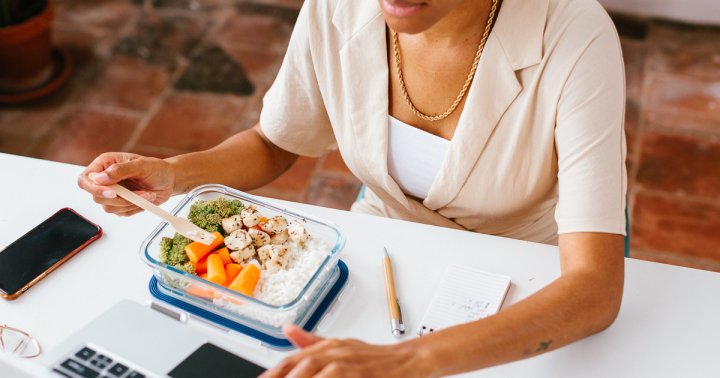
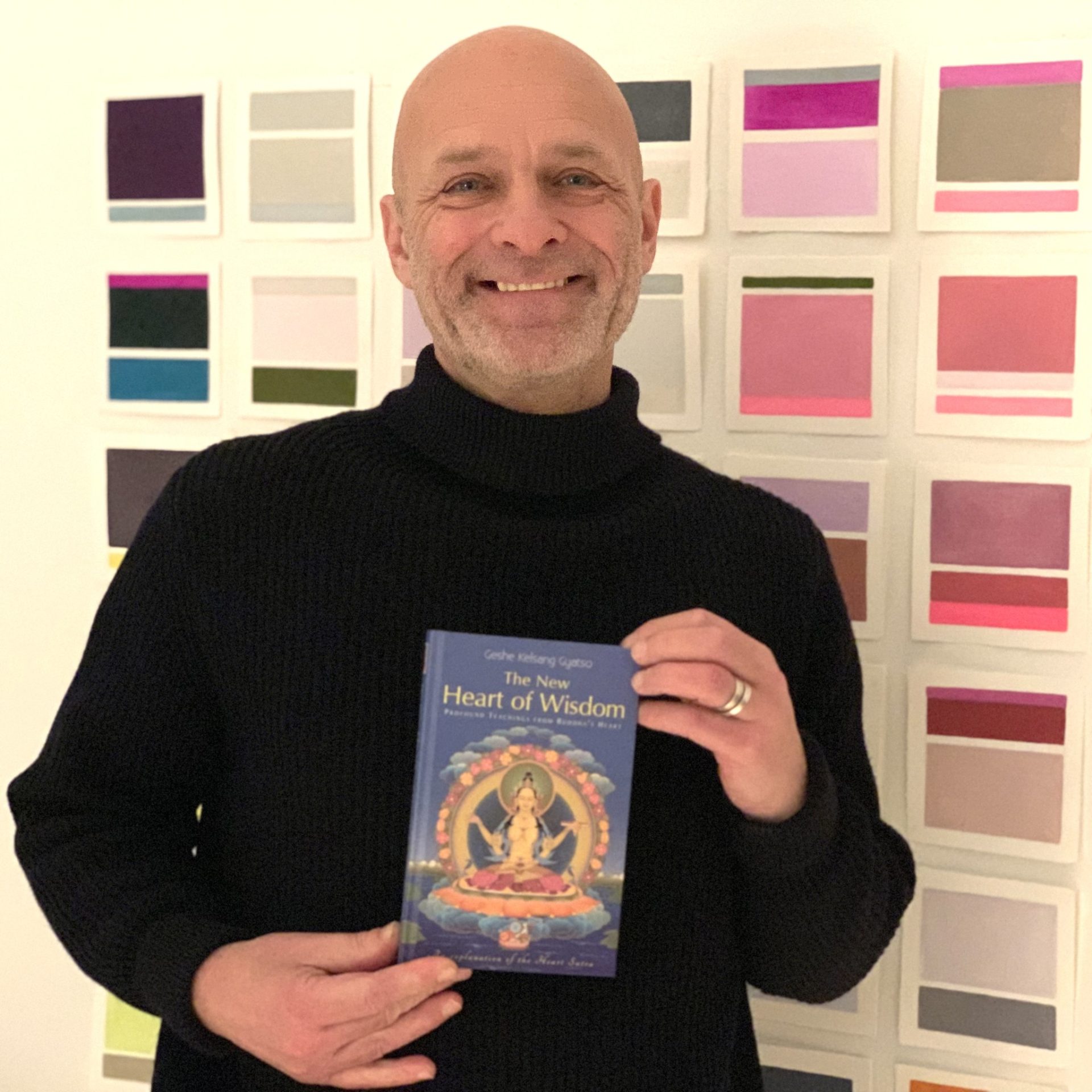

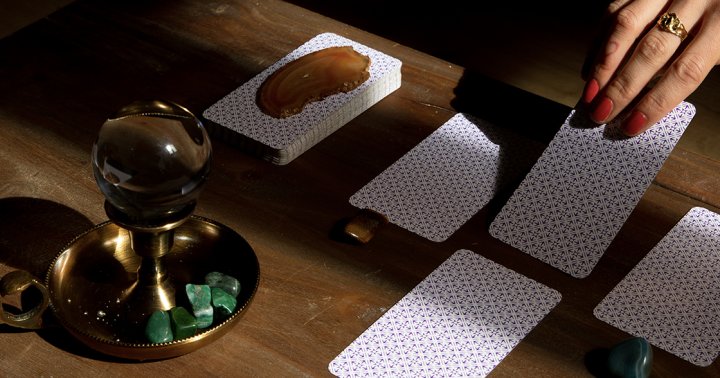
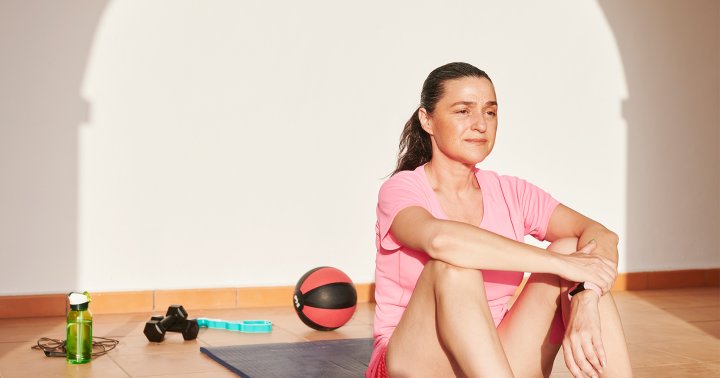













.jpg)

